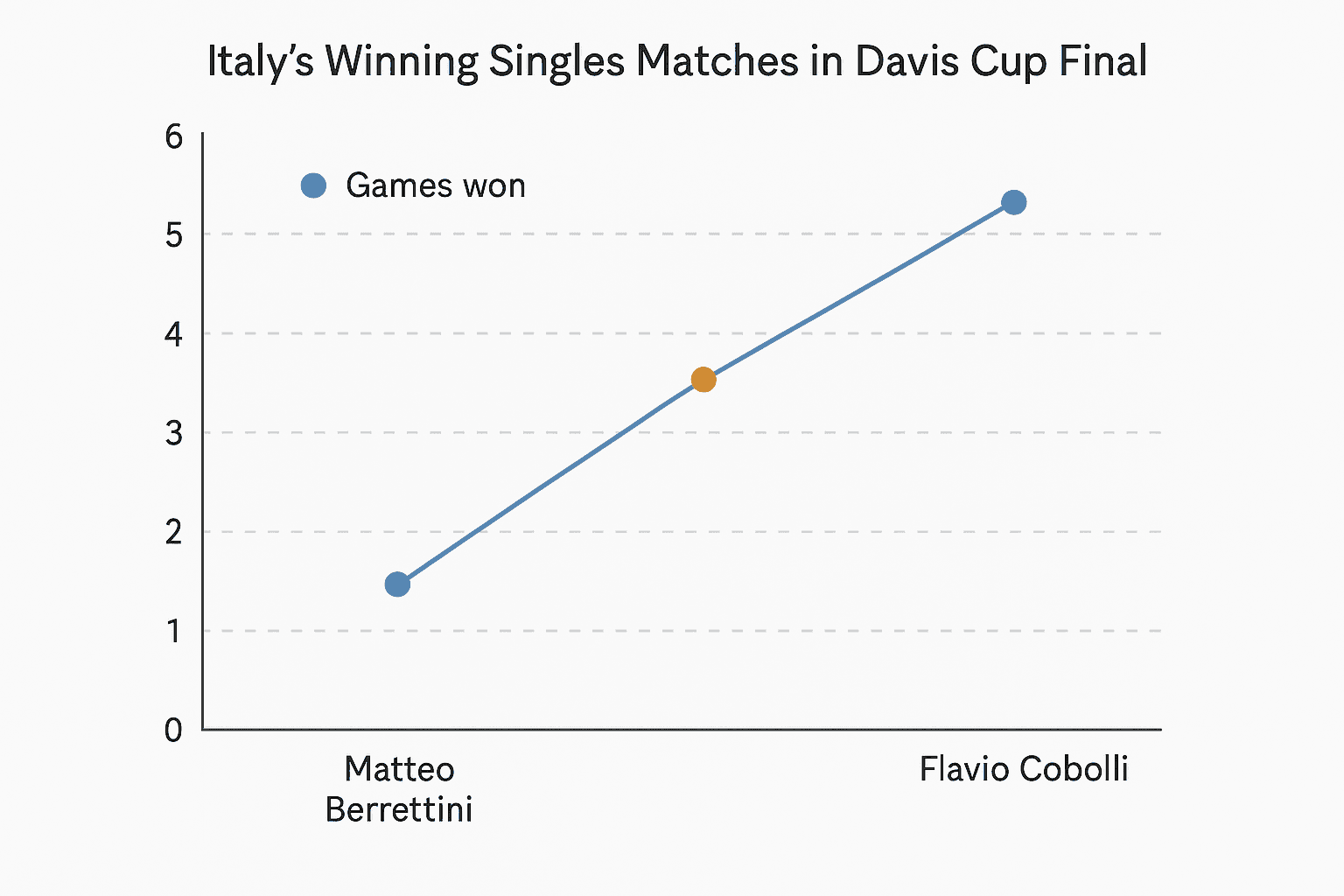Berrettini and Cobolli Deliver Italy Third Straight Davis Cup
Italy completed a historic third consecutive Davis Cup title after Matteo Berrettini and Flavio Cobolli won the decisive singles matches in Bologna, sealing victory over Spain. The triumph cements Italy as the dominant national force in men's team tennis and carries wide sporting, cultural, and commercial implications for Italian tennis.

Matteo Berrettini and Flavio Cobolli ended Spain's bid for the Davis Cup in Bologna on November 24, 2025, delivering Italy a third straight title and a rare three peat in the competition's modern era. Berrettini opened the decisive tie with a composed straight sets victory, setting the tone for the home side, and Cobolli completed the feat with a resilient three set comeback that clinched the trophy for the host nation.
The result underlined a transition within the Italian team that blends established pedigree with emergent talent. Berrettini, long one of Italy's most recognizable tennis exports, provided the steadying presence expected of a leader on the biggest stage. Cobolli, younger and less decorated but increasingly prominent on the ATP Tour, showcased the next generation's capacity to shoulder national expectations under pressure. Their back to back triumphs in singles completed a sweep that few national teams have managed in recent decades and signaled sustained depth across Italy's roster.
Sporting performance was the immediate story. Berrettini's straight sets win kept momentum with aggressive serving and measured baseline control, while Cobolli's three set turnaround demonstrated mental resilience and tactical adaptability as he adjusted his approach to counter Spain's game. Spain arrives in these ties with deep bench strength and a storied Davis Cup pedigree, which made Italy's consecutive titles all the more notable from a competitive viewpoint.

Beyond the court, the victory matters for the sport's ecosystem in Italy. Sustained success at the national team level tends to amplify media coverage, boost merchandise and ticket demand, and attract sponsors seeking association with winning narratives. The domestic tennis federation is likely to find renewed leverage in negotiations for broadcast rights and commercial partnerships, and clubs and academies may see heightened enrollment as young Italians respond to visible role models. The economic impact on Bologna, which hosted the decisive tie, extends to hospitality and local businesses that benefit from international fans and broader attention during high profile tennis weekends.
Culturally, a threepeat feeds into Italy's sporting identity at a moment when national pride is often expressed through global competitions. The win provides a unifying story that crosses regions and demographics, and it elevates tennis beyond an elite pastime toward a mainstream national conversation. For players, coaches and young aspirants, the victory supplies a practical template for building a national program that couples star power with youth development.

Internationally, Italy's run reshapes the Davis Cup narrative as organizers and broadcasters consider formats and markets around which to build future editions. A dominant country can be both a draw and a challenge for a global event that thrives on competitive balance, and Italy's emergence will influence scheduling, promotional strategies, and the tournament's commercial positioning.
Italy leaves Bologna not just with a trophy but with a renewed claim on the international tennis stage, a growing pipeline of talent, and the commercial momentum that comes with sustained success. That combination ensures the victory will reverberate long after the final point was played.


